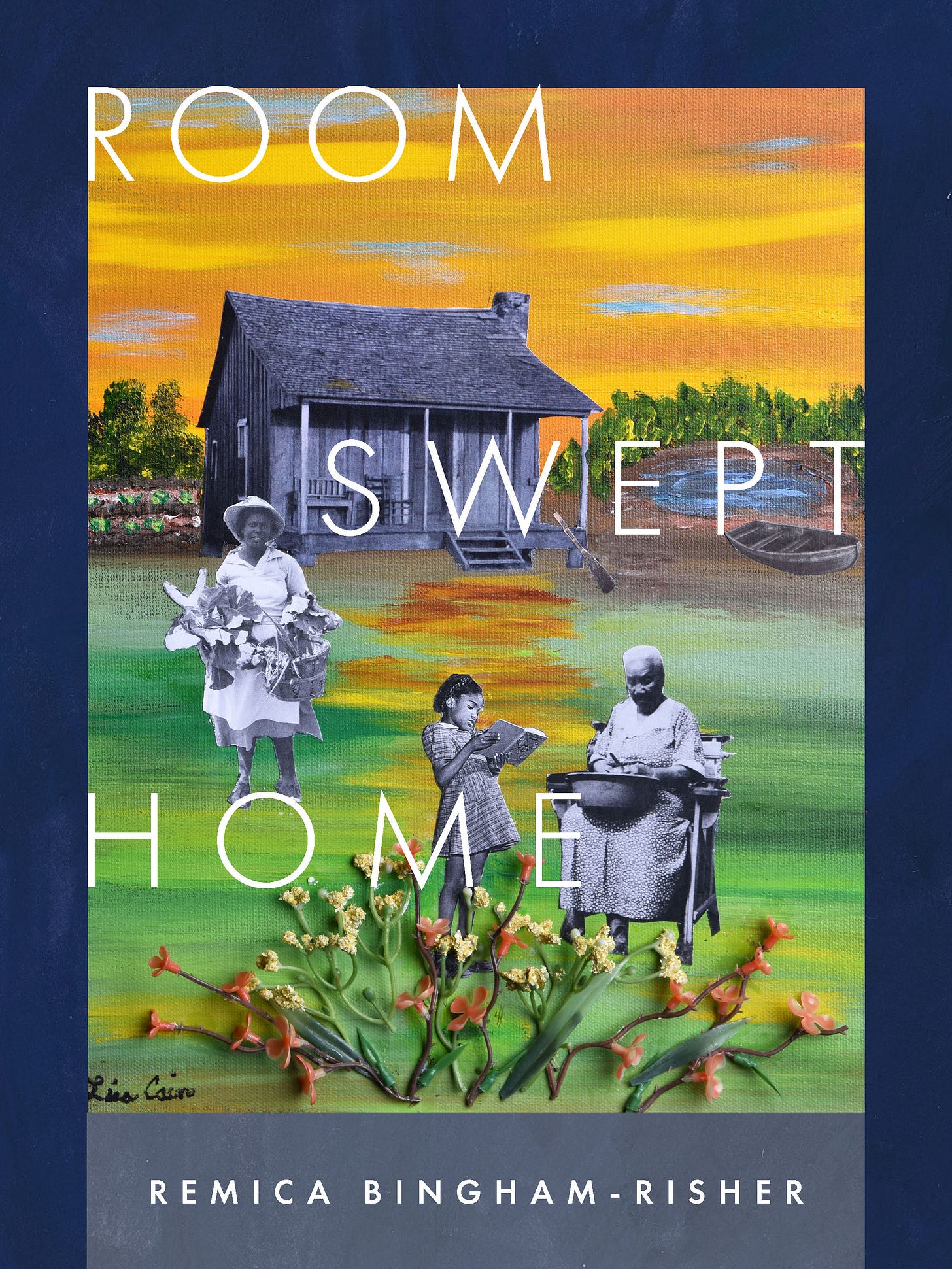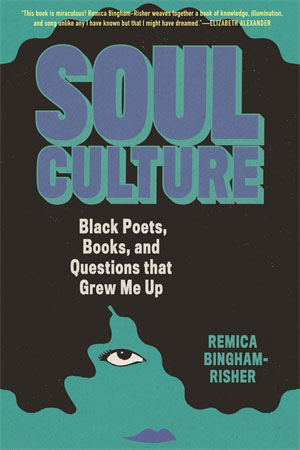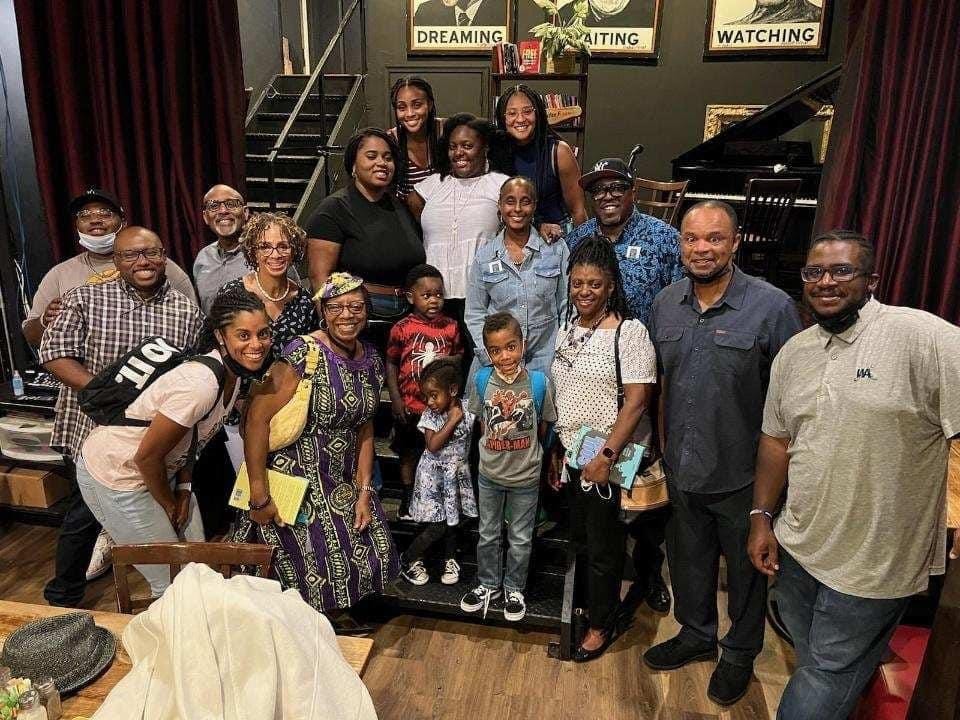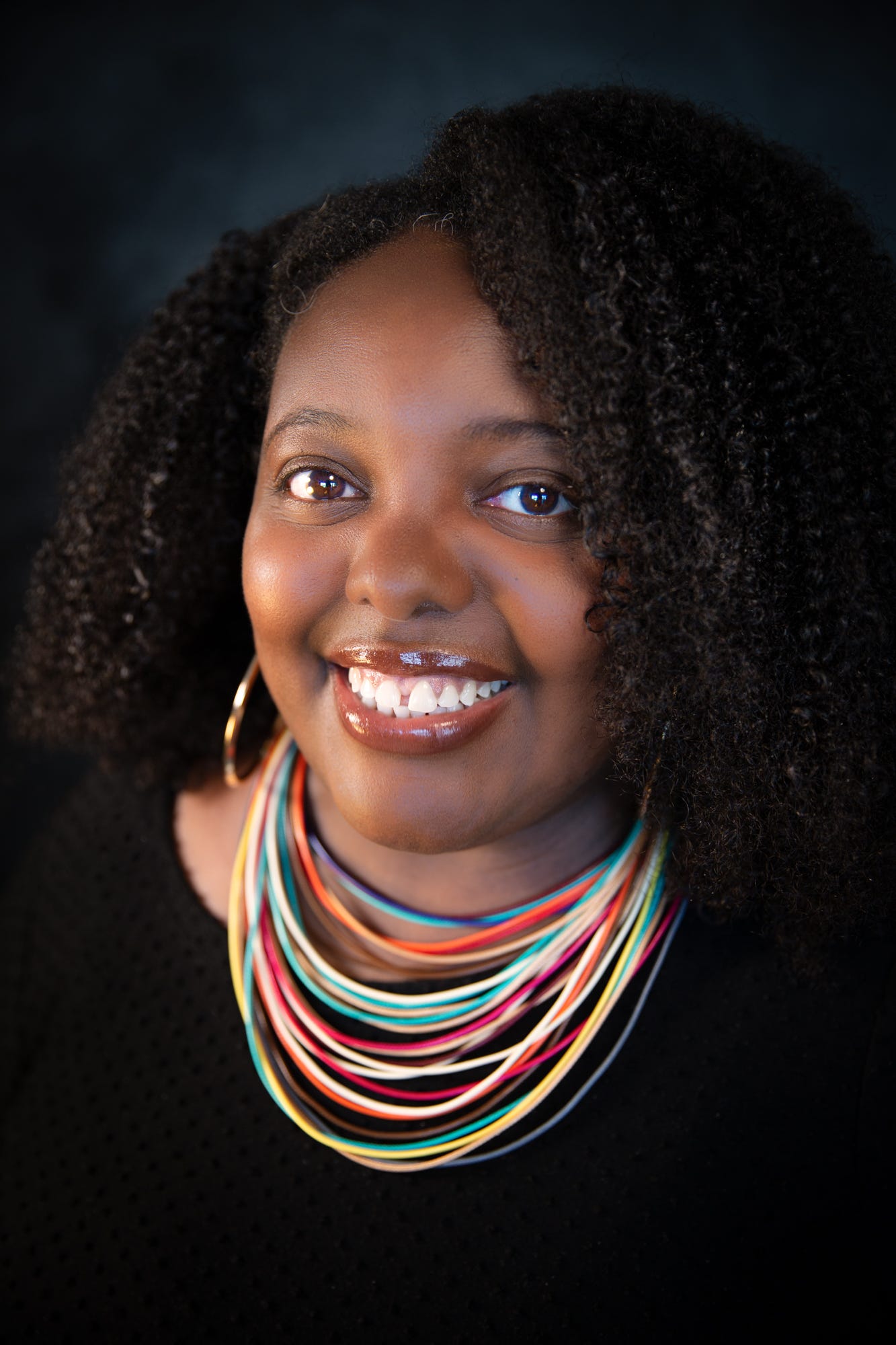"If you want to write, make time for the writing."
poet and memoir writer Remica Bingham-Risher on putting writing on the calendar, learning from Lucille Clifton, and the necessity of reading to fill her creative well
Hello there! This is a good creatures interview, a series that explores the intersection of caregiving and creative practice. I’m so excited to showcase people doing lots of kinds of caregiving—people caring for kids or pets or other family members and/or caring for space through gardening or community work or activism—and lots of kinds of creative work.
If you know (or are!) a good creature whose work we should feature, send me an email—you can just reply to this newsletter.
😎🥳️a little note before we get to today’s main event: I’m teaming up with
, who writes the great newsletter Publish Not Perish, to host a 🎉summer planning party🎉 via zoom on Wednesday, May 22nd from 7-8pm eastern. the change in schedule that often comes with the summer can be exciting but can also throw you for a loop, and Jenn and I have some great practical advice about how to make the most of your writing life in the coming months—while still getting to lounge by the pool, or whatever your vibe might be this summer. register here to join us. (and if you can’t make the party, I’ll send a recording a week or so afterward.) 🥳️😎Today’s interview is with Remica Bingham-Risher, a poet I first got to know when I was working on the anthology The Long Devotion: Poets Writing Motherhood. As the daughter of a really wonderful stepmother, it felt essential to include stepmothering—and it was harder than I would have guessed to find poets writing about it! Remica’s poem, “We See ‘The Lion King’ on Broadway, I Enter the Pride,” so beautifully captures the labor I know so many stepparents put in to helping a blended family come together. (That’s a gift link from The New York Times, so click through but maybe keep a tissue handy; those last lines never fail to make me tear up a little.) Since then, I’ve become an all-around fan of Remica’s work, which now includes a new book of poetry and a memoir, and, she shares below, a novel in progress! She was one of the readers in a really wonderful zoom event we did for The Long Devotion, featuring writers and visual artists on how caregiving has shaped their creative life.
Below, we talk about caring for lots of people, the jump into creating new worlds in fiction, and how becoming a grandmother helped her learn how to finish her most recent book.
Who do you care for?
I still care for lots of folks, myself and my husband included :-). My son is 18. He’s still at home. Now, he does plenty for himself; it’s certainly not like having the four-year-old that he was when his dad and I got married, but we’re still guiding him into this life, I hope. Recently, my 26-year-old daughter moved back to our house as well with my six-year-old grandbaby, Naveen, so we do a lot of caring for them, too, and they do a whole lot of caring for us. I think my grandson is really just a bright light for me right now. In fact, my latest book, ROOM SWEPT HOME, is a book about my grandmothers, mostly. But I couldn’t figure out how and where the book would end in time until I became a grandmother myself, so the last poem I wrote for that book is really about Naveen coming into the world and changing it again for me.

What kind of creative work do you do?
I’m a writer. I think of myself mostly and firstly as a poet. The new book I just mentioned is a book of poems and historical as well as family photographs, it’s a hybrid in many ways. I’m also working on a novel that I just sent out to my first round of beta readers, so I’m jumping into a new exciting genre for me as well. I had a memoir come out a few years ago called SOUL CULTURE: BLACK POETS, BOOKS, AND QUESTIONS THAT GREW ME UP, so the jump into prose isn’t new, but the jump into creating worlds certainly is.

Who provided a model for you in terms of combining caregiving and creativity?
Oh, Lucille Clifton. Ms. Lucille was a writer I interviewed and became a dear love of mine. Her work always shaped me, and she is a poet that I am continually writing in the footsteps of. But her life as a mother was often what bolstered me and made me stop complaining when I felt like I didn’t have time to write. Miss Lucille would often say that she had, of her six children, four in diapers at once and still made time to write her books. So what in the world did I ever have to complain about? If you want to write, make time for the writing.
❤️️ if you find our good creatures inspiring, click the little red heart at the top or bottom to help other creative caregivers find us ❤️️
Is there someone who inspires you that both fosters a creative practice and is a care-giver?
There’s a brilliant writer named Desiree Cooper, who just wrote a children’s book recently and has a book of flash fiction that I also really loved. Des lives near me, but we rarely run into each other when we’re at home. She was a caregiver for both of her parents at the end of their lives, for her own children and is now the caregiver for three of her grandchildren. She continues to inspire me and we continue to encourage each other to make room for the work and to make room for those we love.

What advice would you give someone who is a caregiver that wants to start a creative practice?
To carve out time. I add “Research” a.k.a. times when I’m writing, revising, reading, submitting, etc. in my Outlook calendar the same way that I do dentist appointments, picking up groceries, meetings at work and class visits. I have to set aside time for my writing or the writing does not get done.
Also, reading, for me, is almost more imperative than the writing. If I’m not reading, I don’t have anything to fill the well, and nothing comes when I sit down to write. So I make sure to have plenty of reading time—usually at night when folks have gone to sleep—as part of my routine as well.
a question for you
I’ve been thinking a lot lately (always, to be honest!) about how essential community is for writing, and I love that Remica names as inspirations both the iconic Lucille Clifton and a writer who’s her contemporary and friend. We can learn so much from the writers who are ahead of us, and the writer who are traveling with us.
What writers and friends have inspired and supported you in your writing life?
Remica Bingham-Risher, a native of Phoenix, Arizona, is a Cave Canem fellow and Affrilachian Poet. Her work has been published in The New York Times, The Writer’s Chronicle, Callaloo and Essence. She is the author of Conversion (Lotus, 2006) winner of the Naomi Long Madgett Poetry Award, What We Ask of Flesh (Etruscan, 2013) shortlisted for the Hurston/Wright Legacy Award and Starlight & Error (Diode, 2017) winner of the Diode Editions Book Award and finalist for the Library of Virginia Book Award. Her memoir, Soul Culture: Black Poets, Books and Questions That Grew Me Up, was published by Beacon Press (2022). Her newest book, Room Swept Home, is a work of poems, historical and family photographs (Wesleyan University Press, 2024). She is the Director of Quality Enhancement Plan Initiatives at Old Dominion University in Norfolk, VA, where she resides with her husband and children. You can find her on facebook and on instagram at @remicawriter, and you can read more at her website, www.remicabinghamrisher.com
Write More, Be Less Careful is a newsletter about why writing is hard & how to do it anyway. Subscribe to get more encouragement, inspiration, and practical advice sent right to your inbox.
If Write More has helped you in your creative life, I’d love it if you would share it with a friend or click the red heart at the top or bottom of this post so other folks can find us!





Man, Jesse Lee Kercheval is a huge inspiration. I mean, she never stops talking, so having her as a teacher and a mentor in my MFA (and beyond) meant I learned a lot about her and her creative process just by listening to her (always interesting) digressions. She always had a project that required practice-- yes, writing, but also learning to play the accordion, or learning Spanish....until she was fluent, moved to Uruguay for a semester and came back *with a book of translation*. During the pandemic, she bought a bunch of art supplies, signed up for an online art class at the Royal School and now...has a *graphic memoir*. She will admit she had no plans to publish this stuff when she set out, she was just running down her interests and gaining skills-- and that kind of curiosity and joy in learning and making and sharing is, I think, the platonic ideal of being a creative person.
I remember her poem from The Long Devotion--it was a real standout among so much strong work!